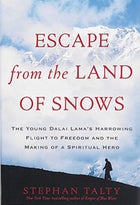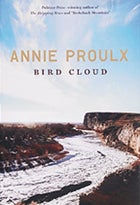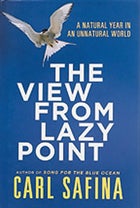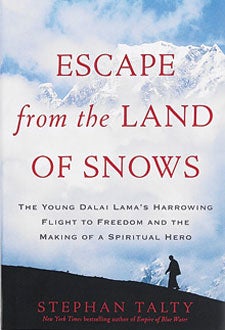YOU KNOW THE STORY: As the occupying Chinese army crushed Tibet’s uprising in March 1959, the 23-year-old Dalai Lama slipped out of the country before Mao could have him arrested, trekking over mountains and crossing rivers to find sanctuary in India. There are plenty of Dalai Lama biographies out thereÔÇöincluding two autobios by the holy man himselfÔÇöbut Stephan Talty turns the flight into the stuff of high adventure in Escape from the Land of Snows: The Young Dalai Lama’s Harrowing Flight to Freedom and the Making of a Spiritual Hero (Crown, $26).
Escape from the Land of Snows
 Escape from the Land of Snows
Escape from the Land of SnowsTalty, author of the bestselling pirate history Empire of Blue Water, recounts the Dalai Lama’s early years as the precocious son of a horse-trading farmer; his discovery by monks seeking the 14th incarnation of the revered leader; and the na├»vet├ę of the young man, who was 15 when China invaded in 1950. Mao collectivized Tibet in the mid-fifties, leading to the 1959 uprising. As troops began storming the Norbulingka Palace, the Dalai Lama’s aides disguised him in trousers and a coat and accompanied him and some 350 other refugees on the two-week winter trek over the Himalayas into India. “The party’s eyebrows and mustaches froze and caked with ice; their hands and feet went numb with the first signs of frostbite,” Talty writes. “As the trail dipped and rose thousands of feet in altitude, blizzards alternated with sandstorms, heavy rain, and then bright sunlight that blinded the travelers.” It wasn’t certain that India would allow the exiled leader in, but a 4 A.M. phone call between the CIA and thenÔÇôprime minister Jawaharlal Nehru’s office secured passage across the border. The experience, the Dalai Lama maintained later, changed him from a child to a wiseÔÇöand outspokenÔÇöleader. “I really feel if I remained … on the throne, the Dalai Lama would be a more holy person,” he said. “But he would have less chance for talk.”
Primary Sources
Bird Cloud
 Bird Cloud
Bird Cloud“The river at sunset became mottled green and peach in patterns that recalled the marbled end pages of old books. Quickly the evening dusk filled with darting swallows, their dark bodies gradually absorbed by the intensifying gloom. The great horned owl called from the island and everything fell silent except the murmuring river and a more distant owl … I told myself the house had to be built. I began to think of it then as a kind of wooden poem.” From Bird Cloud (Scribner, $26), Annie Proulx’s account of purchasing a section of Wyoming wildernessÔÇöincluding her very own islandÔÇöalong the North Platte River, then building the house she’d like to die in.
Seeing Blue
The View from Lazy Point, by Carl Safina
 The View from Lazy Point
The View from Lazy PointFew have done more for the world’s oceans than Carl Safina. After publishing the classic Song for the Blue Ocean in 1998, the ecologist went on to write two more books (about albatrosses and turtles), lead the successful fight to ban drift nets on the high seas, create the Blue Ocean Institute, and win a MacArthur “genius” award. Now he’s back with what might be his best book yet, The View from Lazy Point: A Natural Year in an Unnatural World (Holt, $32). From a cottage on the tip of Long Island, Safina follows the changing seasonsÔÇöMarch brings spring peepers; April, sparrows; and so forth. No mere naturalist’s journal, The View from Lazy Point uses wildlife encounters to build a passionate case against market-driven measurements of success. There is a better way, Safina says: Let’s establish an economic index measuring everything from human happiness to the costs of pollution control. “We can’t take infinitely more from … a finite planet,” he writes. “We can’t run civilization on energy that diminishes the world while living in a world endowed with self-renewing energy. If we can get these simple things under control, I think we could be okay.”


